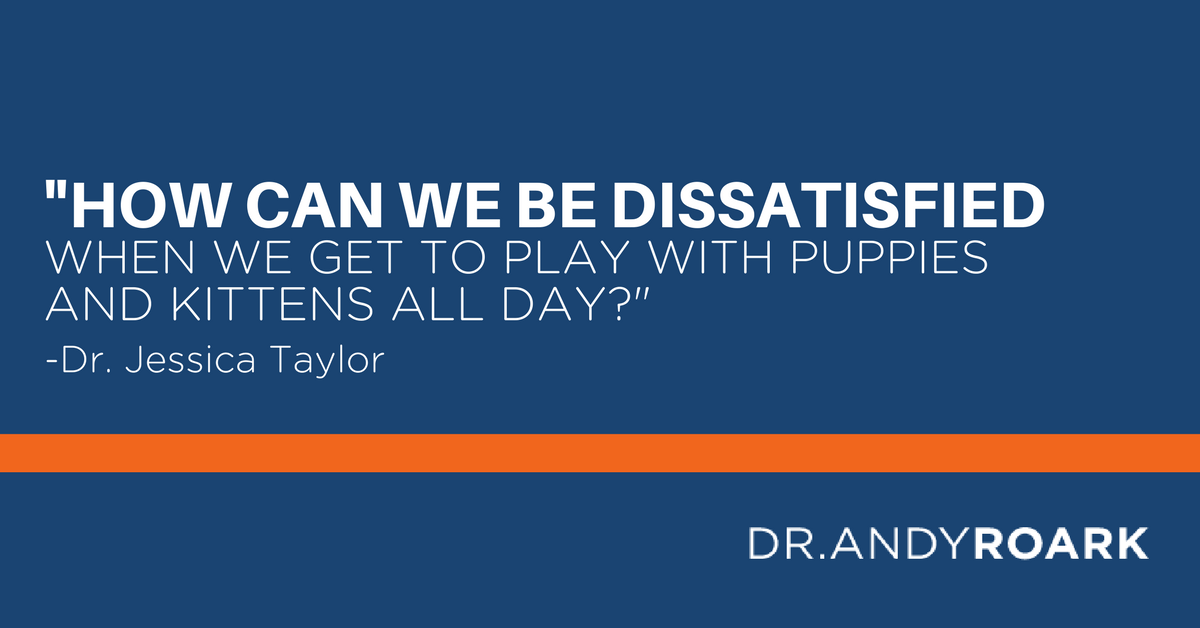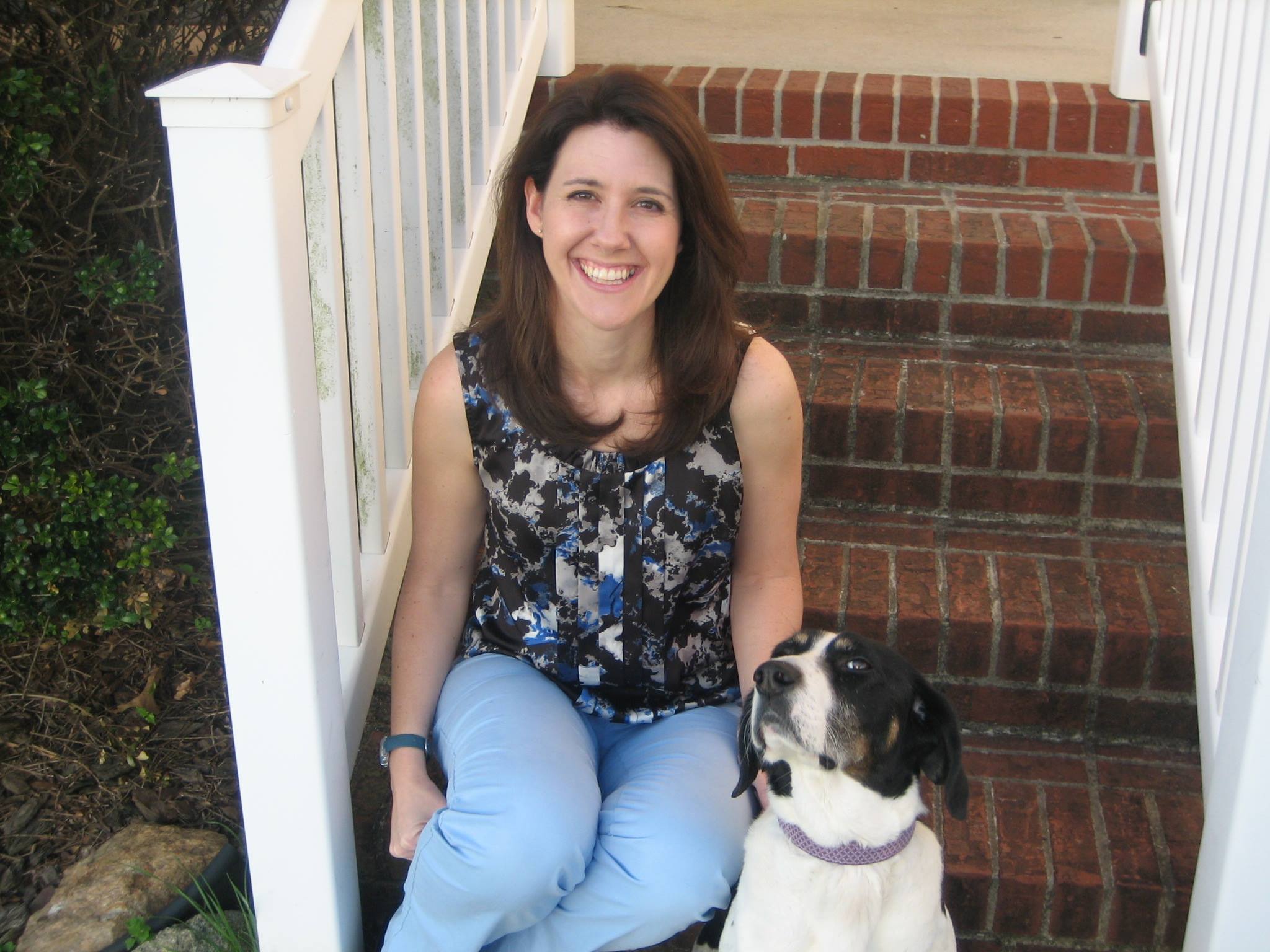

Love what you do! This wonderful adage is passed down to bright-eyed college students and aspiring professionals every day. How many people get to achieve this goal? As veterinarians, we are often told how lucky we are. How can we be dissatisfied when we get to play with puppies and kittens all day? How bad can it be when we mess up- it’s just an animal, after all. We pour our lives into loving patients, clients and science with a devotion that is fierce. Yet, our profession suffers from burn-out, compassion fatigue, substance abuse, and drop-out.
Why can’t we love what we do all the time?
Because it is impossible. After euthanizing the third pet of the day, we are emotionally tapped out. We are discouraged after being yelled at for being money-hungry and unfeeling because we could not treat a pet for free today when it should have been seen 2 weeks ago. We are frustrated when we cannot cure the pet that has the most amazing owners and would spend the money, if there only was an option. After dedicating years of our lives and many, many dollars, we need to find that balance between living our dream and living our dream life.
A few years ago, our church did a series on work and careers. We talked about how work is good- it gives us a way to earn a living and help other people in some way. Work is important in balancing our goals and aspirations with our families and faith. We try to find our ideal job, and that is how most of us veterinarians started out- loving animals and taking care of them. Then the details came in- average client transactions, professional liability, business loans, euthanasias, and all the other things that aren’t included in the veterinarian doll set.
The most powerful message that stuck with me from this series was this: “Your job is what you do, not who you are.”
This concept is difficult to process for professions that encompass a life.
Veterinarians are many things to many people. Guardians of livelihoods, caretakers of family members, and advocates for those that cannot speak for themselves. Our practice is ever-evolving, keeping us up at night worrying if that last ligature was tight enough and striving to learn the newest cutting edge techniques. We tell white lies at cocktail parties when asked what we do to avoid “just one question” and fend off relatives and neighbors with late night texts.
But we must hold on to this one question: if, heaven forbid, we got injured or fired or suffered an event that prevented us from being a doctor, what would happen? The truth is, we would still be a parent, a spouse, a child, and a friend.
Those that matter the most would love us.
Sometimes that thought allows me to sleep when I can’t turn off the worry, calculating the bills in my head, remembering the bloodwork that didn’t get called yet, or if the surgical patient is resting well. If I couldn’t be a vet, I would be devastated, and maybe lost for a while, but I would still be a mother and could cook dinner (mac and cheese again!) and tuck my kids into bed. That helps me take a deep breath after the irate clients storms out or the patient I worked forever to save takes their last breath.
Veterinary medicine is our job, but not our life, and the profession will survive without us and I without it. After all, I do plan on sitting on a beach someday, planning my next novel and retirement trip without a hair-covered white coat in sight.
 ABOUT THE AUTHOR
ABOUT THE AUTHOR
Dr. Jessica Taylor is a small animal veterinarian in North Carolina with a passion for client communication. She shares her home with her husband and 2 daughters, the laziest hound dog on earth, and a tyrant of a cat. In any spare time, she enjoys running, reading, and writing.